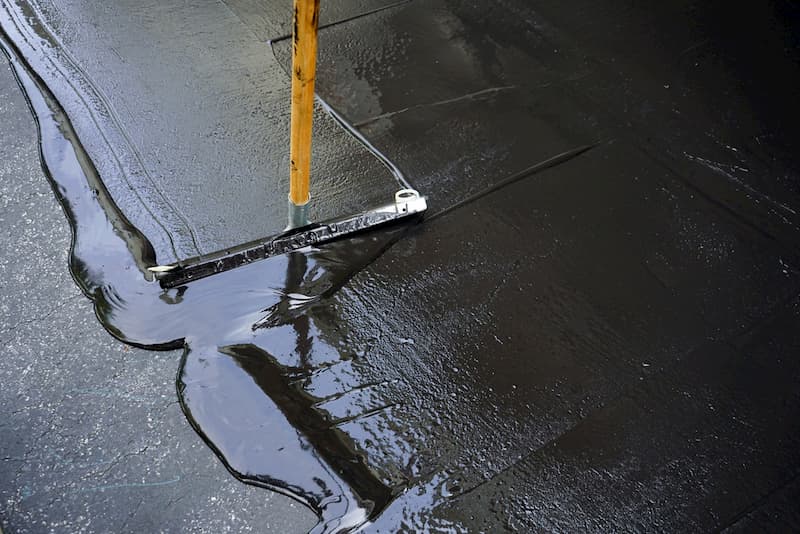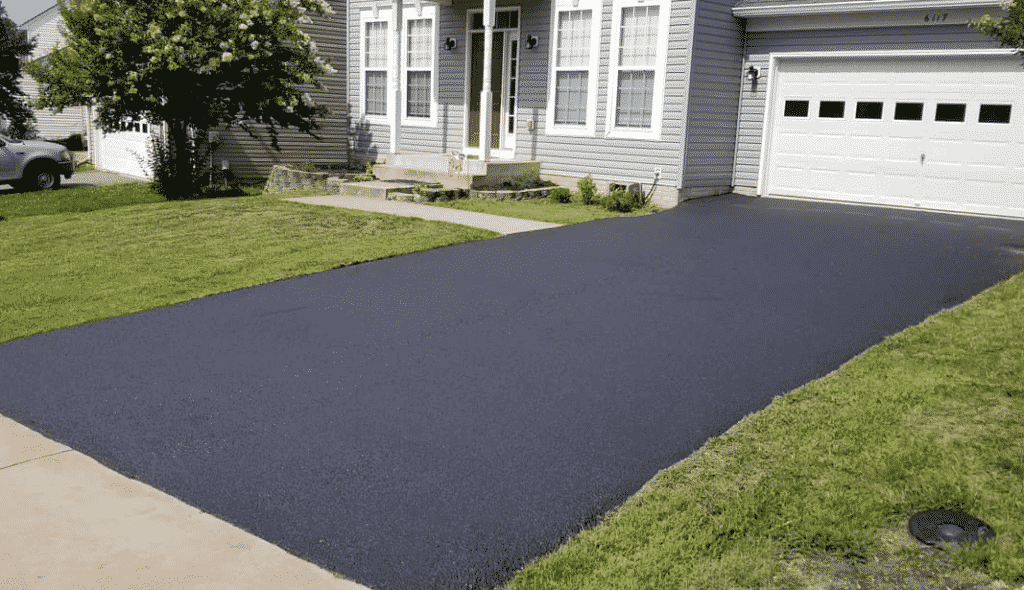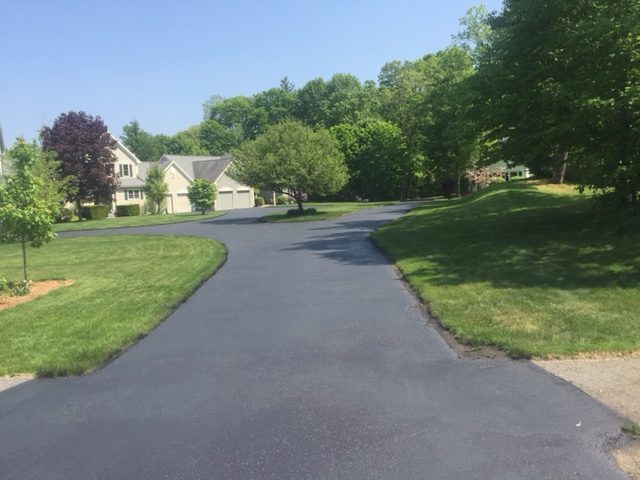Mastering Angled Parking: How Asphalt Sealing Improves Industrial Whole Lots
Mastering Angled Parking: How Asphalt Sealing Improves Industrial Whole Lots
Blog Article
Hot Mix Asphalt: A Lasting Solution for Pavement
Warm Mix Asphalt (HMA) has emerged as a leading lasting option for sidewalk options, providing a myriad of ingenious modern technologies and ecological benefits. As the demand for green building methods grows, exploring the subtleties of HMA's sustainability can provide beneficial insights into the future of sidewalk remedies.
Ecological Advantages of Hot Mix Asphalt

In Addition, Hot Mix Asphalt aids to mitigate metropolitan heat island impacts. Its dark shade absorbs sunshine, decreasing the quantity of heat showed back into the atmosphere contrasted to lighter-colored pavements. This can decrease ambient temperatures in metropolitan locations, decreasing the demand for a/c and ultimately minimizing power usage.
Additionally, Warm Mix Asphalt contributes to enhanced stormwater monitoring. Its permeable nature allows water to reenergize and infiltrate the pavement groundwater supplies, decreasing drainage and the threat of flooding. These ecological benefits make Warm Mix Asphalt a lasting choice for paving freeways and roads.
Energy Effectiveness in HMA Production
Is energy efficiency an important factor in the production of Hot Mix Asphalt (HMA)? Absolutely. Power plays a significant role in the production of HMA, impacting both cost and environmental sustainability. One essential element of energy effectiveness in HMA manufacturing is using warm mix asphalt (WMA) technologies (hot mix asphalt). WMA permits the blending and positioning of asphalt at reduced temperatures compared to standard warm mix asphalt, resulting in decreased energy intake during manufacturing. This process not only lowers gas usage but additionally reduces greenhouse gas exhausts, making it a much more eco-friendly alternative.
Furthermore, improvements in plant innovations have led to more energy-efficient HMA manufacturing procedures. By optimizing power use in HMA production, the market can lower its carbon impact while preserving high-grade pavement materials.
Recyclability of Warm Mix Asphalt
The recyclability of Warm Mix Asphalt (HMA) is a critical element of its sustainability and lasting environmental impact. HMA is among one of the most recycled products in the United States, with over 100 million lots of redeemed asphalt sidewalk (RAP) being reused yearly in new sidewalk building and construction. Reusing HMA provides a number of ecological benefits, such as minimizing the demand for virgin products, lowering energy usage during production, and lowering the quantity of waste sent out to land fills.
The process of recycling HMA entails crushing the existing pavement, crushing it right into smaller sized pieces, and blending it with brand-new aggregate and asphalt binder to create a recycled mix. On the whole, the recyclability of HMA plays a substantial function in promoting lasting methods within the pavement sector.

Long-Term Performance of HMA
Asphalt pavements demonstrate sturdiness and durability over an extensive duration, mirroring the lasting efficiency of Warm Mix Asphalt (HMA) The longevity of HMA can be credited to its capability to withstand heavy web traffic tons, extreme weather, and the effects of aging. Studies have shown that properly designed and correctly created HMA pavements can last for twenty explanation years or even more with routine upkeep. The trick to optimizing the long-lasting efficiency of HMA exists in using high-quality materials, adhering to finest techniques in construction, and carrying out effective maintenance techniques. Proper water drainage, regular evaluations, and prompt repairs are vital for maintaining the structural honesty of HMA sidewalks over time. Furthermore, innovations in HMA technology, such as the usage of polymer-modified binders and warm mix asphalt, have actually further enhanced the toughness and long life of HMA pavements. By focusing on high quality building and upkeep techniques, HMA proceeds to show itself as a cost-effective and lasting solution for lasting sidewalk infrastructure.

HMA: Longevity and Sustainability
Showing both resilience and sustainability, Warm Mix Asphalt (HMA) has come anchor to be a foundation in the construction of durable pavement frameworks - angled parking. HMA's durability comes from its ability to endure hefty loads, severe climate condition, and high traffic volumes, making it a reliable choice for highways, freeways, and airport runways. The composition of HMA, which normally includes aggregates, binder, and filler, plays a crucial function in enhancing its durability and resistance to tear and wear
Moreover, HMA's sustainability lies in its recyclability and energy-efficient manufacturing procedure. The capacity to recycle redeemed asphalt sidewalk (RAP) in brand-new HMA mixtures decreases the need for virgin products and decreases the ecological influence of pavement building and upkeep. In addition, the power performance of creating HMA lies in its reduced blending temperatures contrasted to various other sidewalk products, leading to decreased energy consumption and greenhouse gas discharges.
Final Thought
In verdict, warm mix asphalt (HMA) click here now provides a sustainable remedy for sidewalk with its ecologically friendly features. HMA's recyclability, energy efficiency in manufacturing, and long-term longevity make it an eco-friendly choice for roadway building.
HMA is one of the most recycled products in the United States, with over 100 million loads of recovered asphalt sidewalk (RAP) being reused annually in brand-new pavement construction.The process of recycling HMA includes milling the existing sidewalk, squashing it right into smaller items, and mixing it with brand-new accumulation and asphalt binder to create a recycled mix.Asphalt pavements show longevity and durability over an extended period, reflecting the long-lasting efficiency of Warm Mix Asphalt (HMA) Additionally, innovations in HMA technology, such as the use of polymer-modified binders and warm mix asphalt, have actually better enhanced the durability and durability of HMA sidewalks. The capability to recycle reclaimed asphalt pavement (RAP) in brand-new HMA blends reduces the demand for virgin products and minimizes the environmental influence of pavement building and upkeep.
Report this page